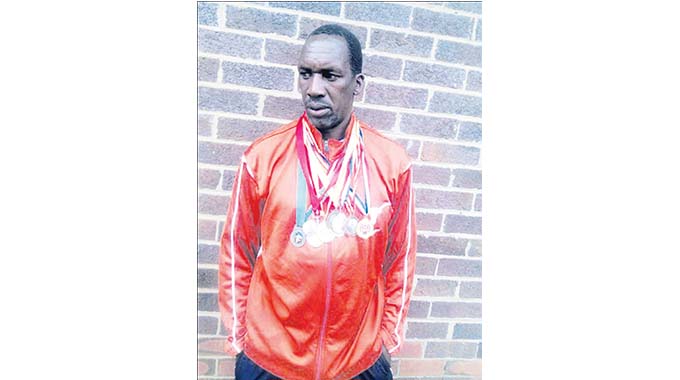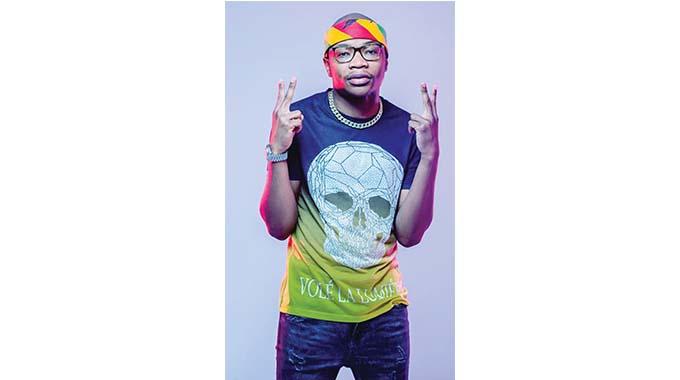Unity: No colour, no tribe, only Zimbabweans

Elliot Ziwira, Feature
THERE exists in all of us that goodness which cannot be constrained no matter how bad others may view us, or we pretend to be.
Taken, as human beings we are capable of bringing harm on others.
Nonetheless, we are not immune to hurt. What qualifies our being is that we are guided by conscience, because after all deep inside we are good people.
As the Swiss psychiatrist and psychoanalyst Carl Jung (1875-1961) once said: “Deep down, below the surface of the average man’s conscience, he hears a voice whispering, ‘There is something not right,’ no matter how much his rightness is supported by public opinion or moral code.”
Yes, we may have our differences; we may face challenges; we may have grievances.
We may be discontented, even, but there is something wrong with the way we sometimes express our grievances. Something is not right, either, in the way we at times clamour for an eye for an eye.
It only makes us all blind.
This December, as the National Unity Day approaches, we should go beyond our differences and be part of a collective dialogue aimed at finding solutions to our challenges.
Each one of us has a role to play in taking the nation state to that desired future time.
Imagine what we can achieve if we combine the resilience in you my sister; coupled with your motherly glow; your robust attitude brother; our little brother’s intellect and analytical prowess; our great friend’s business acumen and our mother’s never say die spirit.
Just envisage the formidable fortress that we will be able to build for our descendants.
Has it ever occurred to you that a man whose heart harbours vengeance as opposed to forgiveness, cannot also forgive himself? As such, he is the one who suffers the most.
In his mortal struggle against himself, he does not only inflict pain on himself, but the resultant scars will always be evident years after his death.
A man who engages in combat against himself is he that looks in the mirror, and sees a man of colour, a white man, an Asian, a Ndebele, Zezuru, Karanga, Korekore, Tonga, Venda or a Manyika, instead of seeing a Zimbabwean.
We pride ourselves in being peace-loving and tolerant.
Is that what is reflected when we take a closer look at ourselves in the mirror? The scars that we inflict on ourselves and others, are they not a true reflection of our nature?
A few months before his assassination on October 15, 1987, the Burkinabe revolutionary, Thomas Sankara said: “While revolutionaries as individuals may be murdered (or die), it is difficult to kill ideas”.
A lot can be discerned here, in relation to the African story in general, and pertinently the Zimbabwean one.
Revolutionaries like Joshua Nkomo, Robert Mugabe, Julius Nyerere, Samora Machel, Amilcar Cabral, Kwame Nkrumah and Josiah Tongogara, as individuals may exit the scene, but their ideas will remain behind as a legacy.
Individuals per se, are therefore, not greater than their own ideas, for they are outlived by them. So, the ideas that they leave behind, may not only be a true reflection of their nature, but may also surpass even their own expectations.
It suffices that a revolutionary, as a mortal being departs the world, but the revolution remains. Hence, as a product of the revolution, the revolutionary is not greater than it.
As it is premised on ideology, the revolution is inheritable. That is why it remains perpetually on course after the departure of its pioneers, who are mere mortals.
Revolutionary leaders should always implore their lieutenants of the folly of dangling the ethical carrot in the face of the people as this is detrimental to nation-building.
It leads to the collapse of the nation state, because, as Franz Fanon points out in “The Wretched of the Earth” (1967), “These heads of the government are the true traitors in Africa, for they sell their country to the most terrifying of their enemies; stupidity.
This tribalising of the central authority, it is certain, encourages regionalist ideas and separatism.”
African leaders as the custodians of the revolution, are answerable to the people — the owners of the revolution.
The peace we are enjoying in this country has been a result of our leadership’s ability to play down the ethnical scourge, through the signing of the Unity Accord on December 22, 1987.
Political careers that hinge on regionalism do not only scathe individuals, but the wounds are also a great pain to the entire nation. It fans acrimony and violence.
Those with true political clout should have their mettle tested in the national fray, instead of bullying others in the provinces.
The scriptures tell us that a prophet is never appreciated in his own town. This in itself does not mean that he ceases to be a prophet.
It simply means that he should spread his wings and help others besides those from his own community.
If he remains in his hometown, his prophecies will become questionable as they will not be clearly separated from reality — the reality that he already knows. But, if his reputation grows in other provinces, as is the case with true prophets, then, naturally, he remains a hero in his home area.
The late nationalist and Vice-President, Joshua Nkomo, earned the title Father Zimbabwe because of his unifying ideas. Despite his ethnical background, which could have limited him had he chosen to, his star shone brightest in Harare, formerly Salisbury, where his political career took shape.
The values that he embraced as a Zimbabwean and not a descendant of a single ethnic group, brought not only freedom to Zimbabweans, but the much needed Unity Accord of 1987.
On the other hand Ndabaningi Sithole and his Zanu Ndonga party dangled the regional carrot after falling out of favour with his Zanu counterparts and as a result he could not make a national appeal. His death marked the disintegration of the fortunes of his party. Wilson Khumbula, his successor, could not escape the bane of tribalism, and as a result, his traditional grip on the Chipinge region loosened, thus confining his party to the doldrums of history.
As a prophet his prophecies had become too predictable to be of any impact on the national fray.
Regionalism has also been at the centre of opposition politics in Zimbabwe. At its inception the MDC fuelled ethnicity through acceptance that one from a particular ethnic group cannot be accepted nationally. This became evident in the party’s executive structures, and the incessant internal squabbles, which has led to the MDC sloughing several times.
All Zimbabweans, who cherish their country should know that a divided team will never win any competition. A divided team is prone to outside interferences.
President Mnangagwa’s dream has always been unity, prosperity and peace for his people as it is this that consolidates the economic freedoms enshrined in the revolution.
Individuals are not the alpha and omega of all that is Zimbabwean, because this sod of soil belongs to all of us.
During the liberation struggle we were supported by others, who were not of our race, and we sometimes found ourselves pitted against those of our creed, which is testimony that a Zimbabwean is not only that of colour. Among our national heroes are people of other races, who considered themselves Zimbabwean through their support of the people’s revolution.
There are graves of white priests and nuns at St Paul’s Musami Mission, who were brutally murdered by Ian Smith’s regime for their open support for our liberation struggle.
We have people of other races here, who pride themselves in being Zimbabwean, but who feel ostracised because some of their flock spat in the open hand of reconciliation extended to them.
They should not be punished for the sins of their fathers in the same way that ethnicity should not be fanned to kindle past differences known only through folklore.
As National Unity Day approaches, we should embrace each other as a nation, and desist from erecting ethnical bars against each other as siblings are wont to do.
It is that which gives us pride as a people, and helps in preserving the gains of our liberation struggle, knowing that constructive divergent views do not always constitute enmity.












Comments